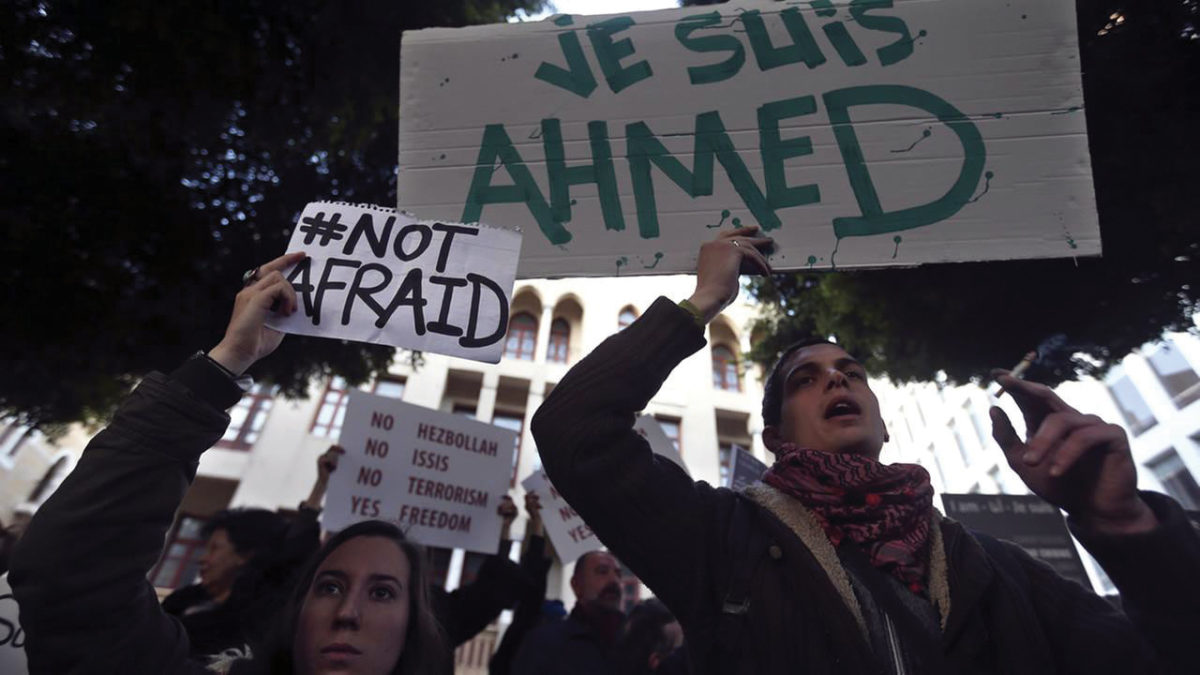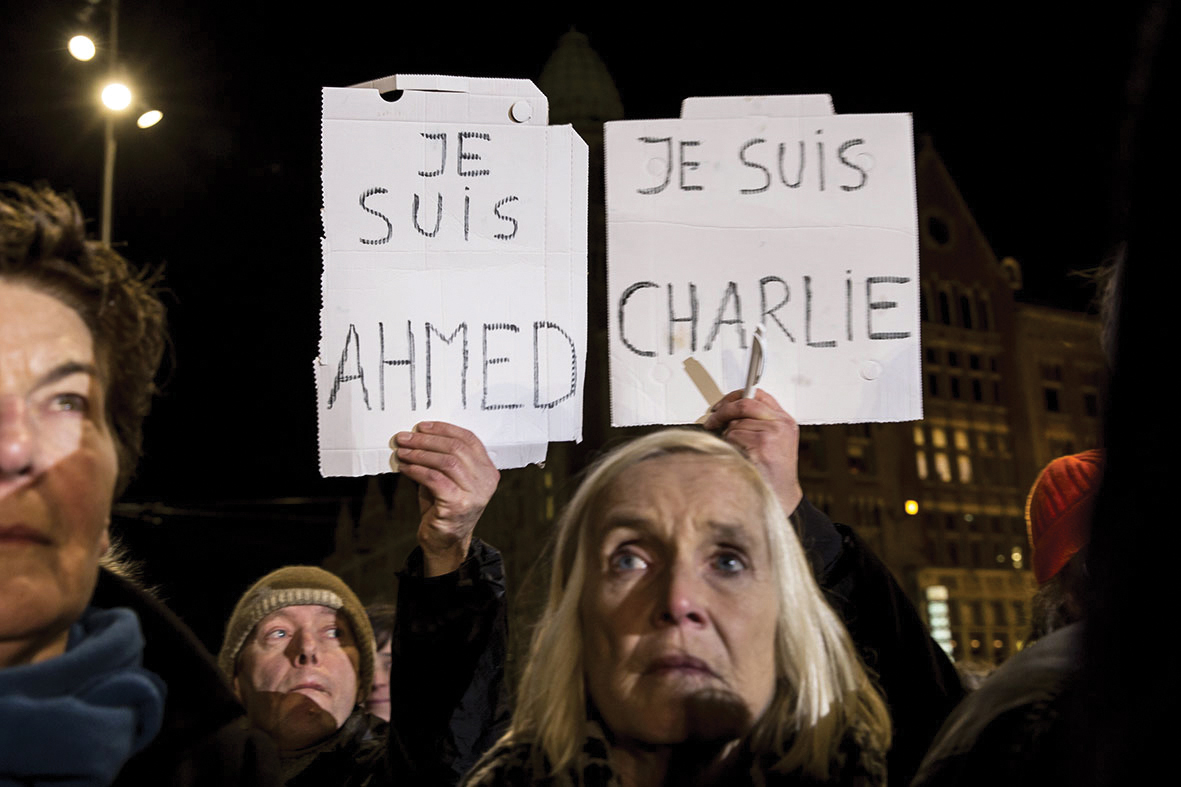Alexandra Bain wasn’t thrilled when one of her colleagues showed her a poster saying “Je Suis Charlie”. The STU religious studies professor and Muslim convert couldn’t agree with the message.
“I’m not Charlie,” said Bain. “I don’t support insulting and denigrating other people’s beliefs.”
Public support for the French satirical magazine Charlie Hebdo erupted around the globe following the killing of 12 cartoonists, journalists and staff. Tweeters used the hashtag #JeSuisCharlie to demonstrate their solidarity with the magazine and world leaders marched the streets of Paris in defense of freedom of expression.

As a Muslim, Bain felt excluded by these demonstrations. She doesn’t support Charlie Hebdo, but she does support free speech. She was excited to see another social media movement emerge out of #JeSuisCharlie – #JeSuisAhmed.
“Ahmed is the young French Muslim policeman who died fighting to protect the right to free speech,” said Bain. “So I’m not Charlie – I’m Ahmed.”
Bain said #JeSuisCharlie comes from good intentions, but many people who hold the banner for free speech might not understand the broader implications. She can’t support the “religious hatred” of Charlie Hebdo, but many people don’t notice any problem. The Paris-based magazine has become a bastion of free speech for people who didn’t know the magazine existed a month ago.
Bain thinks #JeSuisCharlie is a visceral reaction to horrific violence that consequently turns the fight for free speech into a fight against Islam.
“It turns it into an us-against-them, and that’s not helpful.”

Hadeel Ibrahim thinks the Charlie Hebdo killings were horrific, but that doesn’t make their cartoons any less offensive. Ibrahim was born and raised in a Muslim community in Iraq and while she doesn’t feel personally attacked by the cartoons, she sees why some people would be.
“[The cartoons] are offensive and unnecessary and, I would say, isn’t really considered journalism,” she said.
Ibrahim feels STU is open to differing opinions on sensitive topics, but in her time in Canada she has still encountered subtle, implicit anti-Islamic racism. The Charlie Hebdo attacks have garnered polarizing responses, but in a university that values free expression, she still reveals her own possibly unpopular opinions. She doesn’t think the quiet racism grows from hatred, but rather from misunderstanding.
“I’ve encountered a lot of people who were very misinformed and uninformed,” she said. “One time a girl asked me if Iraq was in Africa, and then she corrected herself and was like, ‘No, you can’t be from Africa, you’re white.’ No, I’m not white, nor am I from Africa.”
Many news outlets have reprinted some Charlie Hebdo cartoons, but Ibrahim thinks if the Aquinian did, it would send the wrong message to STU’s Muslim community.
Bain thinks the 40 world leaders that marched sent that same well-intentioned but potentially disrespectful message.
She doesn’t mind Charlie Hebdo’s most recent cover: a Muslim man, crying, with a “Je Suis Charlie” sign beneath the words “Tout est pardonné”, or “All is forgiven”.
“I would have liked to have seen it say ‘Je Suis Ahmed’, but I think, knowing Muslim history and culture, that wasn’t a likelihood either.”

